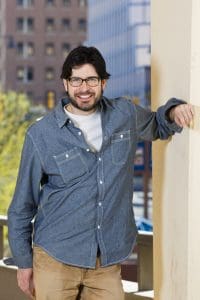This article, by John Muñoz, was originally published in the Arizona Daily Star, opens a new window on January 29, 2022.
Recently, my sisters and I were clearing out one of my mom's bookcases. She had died two months before the pandemic hit, so it was an overdue task. In one of the long, low drawers of the bookcase, we found some interesting items from six decades ago. Amid the dust, the artifacts were of the same era. My dad’s BAC (union) journeyman certificate, in pristine condition, an incredible find. Plus, a battered, brown wallet. No money, but several cards identifying it as my mom’s father’s (Ramiro Villegas). He died March 6, 1961, when he was 60 or 63, depending on the source.
Pima County Public Library’s Ancestry database lists his birthdate as April 22, 1897, and his birthplace as Valparaíso, Zacatecas, Mexico (inland, east of Mazatlán). Researching that was edifying because according to my mom, her father always listed his birth year as 1900. “It made knowing his age very easy,” she used to say.
I don’t know why my grandfather “became” three years younger. Records show his family moved to El Paso, Texas, when he was 12 years old. Maybe in school his teachers demoted him a few grades, and he “lowered” his age to match? He was older than most when he wed my grandmother. His father had died young, and he was the eldest of several siblings. So he postponed marriage until the youngest reached adulthood. The day after he turned 35, he married my grandmother, who was 19.
Among the stuff in his wallet, two items stood out. The first was a frayed newspaper clipping from Dec. 26, 1959, with the headline, “U.S. Listens for Voices from Other Planets.” The article was about the first modern experiment to search for extraterrestrial intelligence, called Project Ozma, named for the ruler of Oz — “a hard-to-reach, faraway place, populated by exotic beings.”
The other item was his Tucson Public Library (TPL) card, which pre-dated our move to Pima County Public Library.
My grandfather worked for Southern Pacific Railroad his entire adult life, but according to my mom, his true passion was futurology, both reading and discussing it. When the first Sputnik satellites started zipping over the night skies of Tucson, he used to spread out blankets in their backyard, reclining on the ground to catch glimpses of the space probes as they drifted by, 350 miles straight up.
TPL's Carnegie library was a half-hour walk from their home in Barrio Millville. I can imagine my grandfather in that wood-paneled library, in the 1950s, marveling over the promise of scientific utopias, as predicted in popular magazines, like Collier's and Life, with classic artwork of alien landscapes, single-stage rockets and massive rotating stations above the curve of Earth.
Most likely, he paged through the Sept. 14, 1959, issue of Life magazine, introducing the original seven astronauts of Project Mercury. For a person born six years before the Wright brothers’ first flight, the possibilities of the future must have seemed limitless. One month before Yuri Gagarin rocketed into outer space, however, my grandfather died. I was born a few years later and inherited his fervor.
At an early age, I began to consume all forms of speculative fiction, beginning with old episodes of Star Trek, aired on KZAZ after school, Monday through Friday. That broadened to regular, boyhood hikes to the sci-fi section at Eckstrom-Columbus Library. I used to walk six miles there, round trip, usually under a scorching Tucson sun — steering a landspeeder over the sands of Tatooine, in my mind, there and back.
I believe the enthusiasm that drove us both to dream about the future, my grandfather and me, was the hope for something better. Not for ourselves, but for the people of the world. That someday, after ages of constant strife, people might start to live their lives in a better, more productive way, with technologies that ease their burdens, on Earth and beyond.
And on every occasion when I used to talk with my mom about such topics, about the wonders the future could bring, she would always say the same thing: “Whenever you talk about the future, Johnny, you remind me of my father.”
This year, John Muñoz celebrates 20 years with Pima County Public Library. He currently works at Oro Valley Public Library and serves on the Nuestras Raíces Team as well as tween and young adult services.



